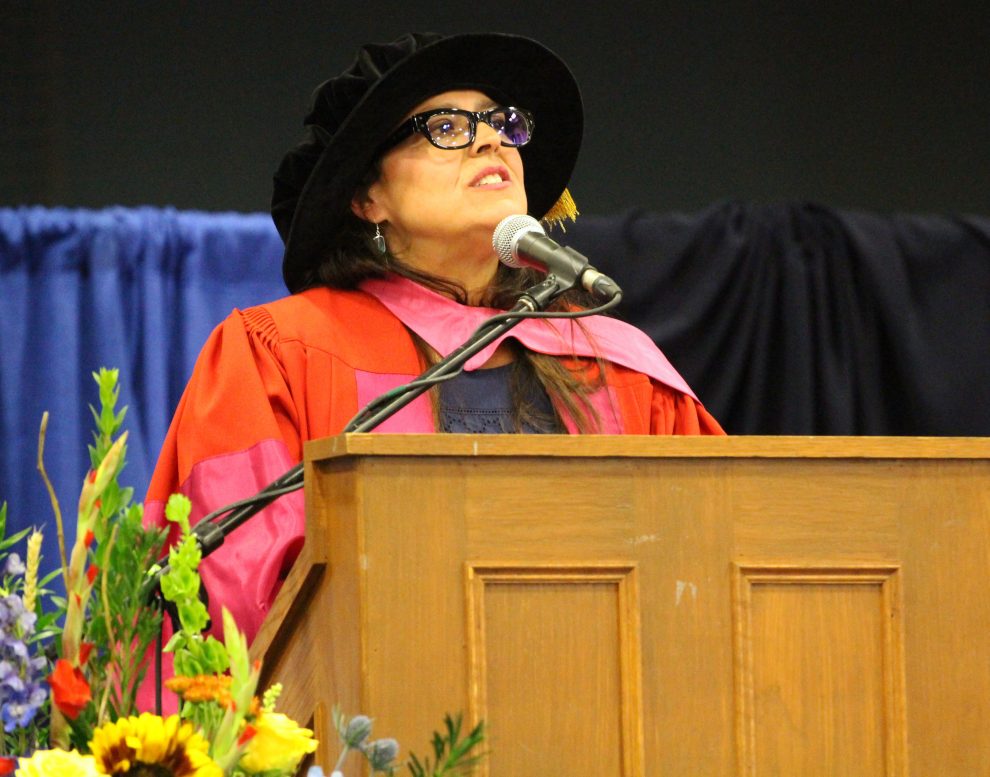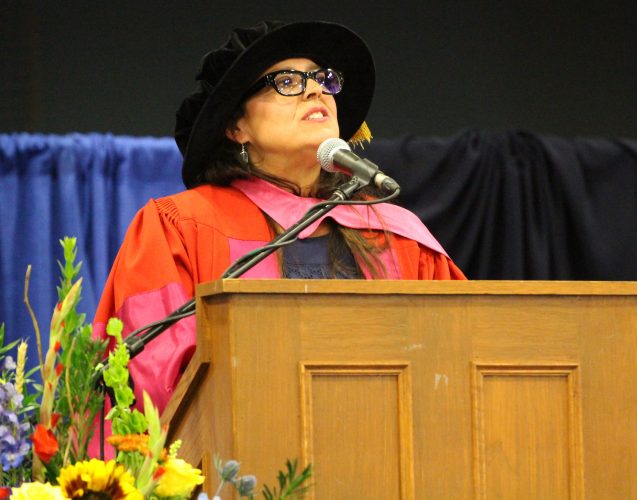Education
Honouring ‘Indigenous intellectualism in a way that is meaningful’
'My job ... is to make sure the door is open for other people'

caption

caption
Tracey Lindberg thanks the University of King’s College for recognizing her work.Tracey Lindberg is an award-winning lawyer, academic and novelist. She hopes the honorary degree she received from the University of King’s College last week is the beginning of a meaningful relationship between the university and Indigenous people.
“I am the first person to have this honour bestowed upon me from this institution, I believe, who’s Indigenous – first Cree, I’m almost certain,” she says.
“Now that I’m here, my job is, as it always is, to make sure the door is open for other people.”
Adrienne Abbott, the director of advancement at King’s, confirmed that Lindberg is the first Indigenous person to receive an honorary degree from the university.
On Thursday, Lindberg was presented with an honorary degree of civil laws, following the installation of the university’s 25th president, William Lahey. Lindberg was honoured at a convocation alongside former King’s student and award-winning freelance journalist, Patrick Graham.
Lindberg is a citizen of As’in’i’wa’chi Ni’yaw Nation, also known as the Kelly Lake Cree Nation, which is located along the British Columbia-Alberta border. She is thought to be the first Indigenous woman from Canada to receive a master of law degree from Harvard University.
Lindberg says the acknowledgment demonstrates that no one achieves success alone, and she named the many teachers who have helped her along the way.
“Whenever I was promoted or advanced … it’s because someone remembered that it was important to have an Indigenous person in the room. In some cases, exceptionally important to have a Cree person in the room.”
Lindberg said that she does not come from a community like King’s, where programs and studies focus on the written word. The Cree people practice an oral tradition.
“I come from a territory, a people, a tradition, where we didn’t have written language, we didn’t have great books. But, we have great philosophers, and thinkers. We have a living tradition of Indigenous intellectualism that spans across our nation and yours as well, as Canadians.”
Her first novel, Birdie, published last year, has gained nation-wide attention and was shortlisted for CBC 2016 Canada Reads competition. The book confronts difficult issues for Canada’s Indigenous peoples, including colonialism, sexual violence and abuse, and familial abuse.
“It’s a hard book, but it’s very worthwhile. You should give it a read,” Graham said during his address to the convocation.
Lindberg noted her honorary degree comes during a time in Canada when non-Indigenous people are reflecting on what it means to reconcile with the country’s Indigenous communities.
“It means that this institution honours Indigenous intellectualism in a way that is meaningful.”
Earlier in the week she gave a lecture to King’s students and faculty on the topic of “finding inspiration in areas you didn’t know existed.”
She says that prior to being contacted by Lahey she had never heard of the university, but says she takes the new relationship seriously.
“What reconciliation really is, is saying ‘I’m a part of your community, you’re a part of my community’ … (Reconciliation) is hard, and it’s messy, and we’re going to make mistakes and it’s going to be uncomfortable, and that’s going to have to be okay.”
Lindberg is on a Canada-wide tour, speaking about her work, both fiction and nonfiction, to Indigenous and non-Indigenous communities. She teaches at the University of Ottawa in the faculty of law.

